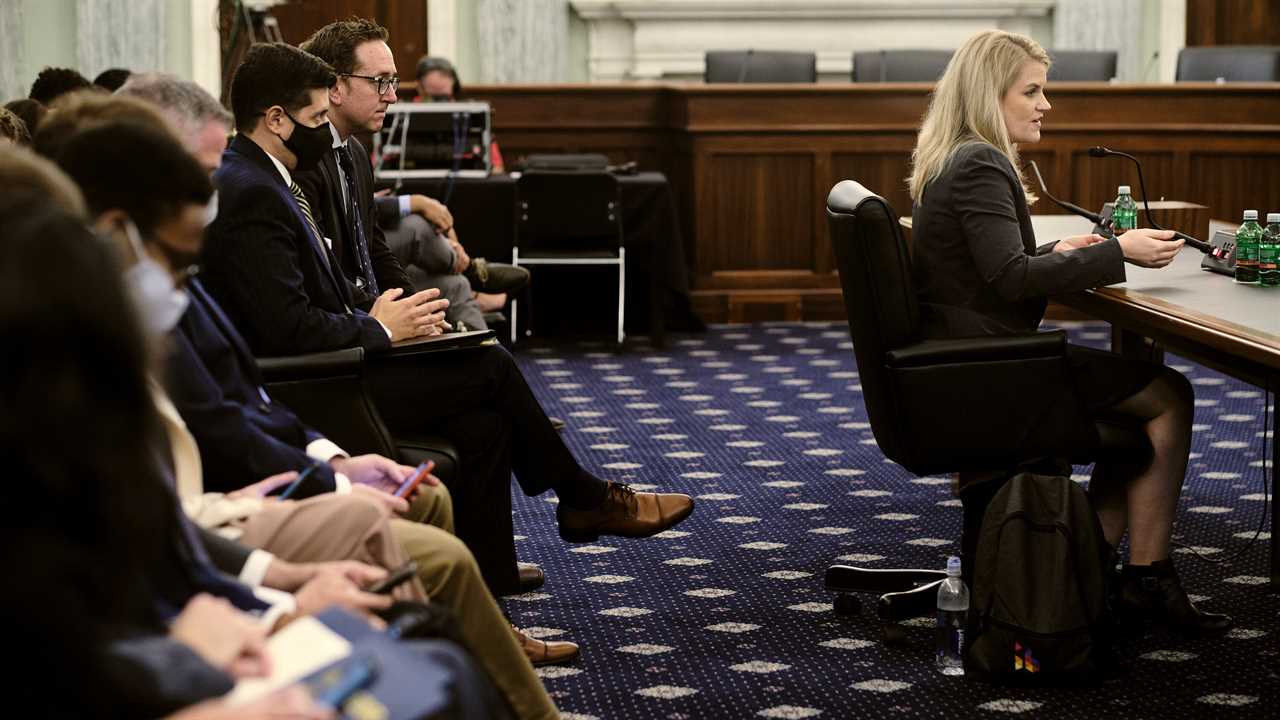
Facebook has told employees to “preserve internal documents and communications since 2016” that pertain to its businesses because governments and legislative bodies have started inquiries into its operations, according to a company email sent on Tuesday night.
The move, known as a “legal hold,” follows intense media, legal and regulatory scrutiny over the social network’s harms. Lawmakers and the public are up in arms after Frances Haugen, a former Facebook employee turned whistle-blower, provided thousands of internal documents to lawmakers and the media showing how much the company knew about some of its ill effects, such as spreading misinformation and exacerbating body image issues in some teenagers.
Those files, known as the Facebook Papers, were initially published by The Wall Street Journal.
“As you are probably aware, we’re currently the focus of extensive media coverage based on a swath of internal documents,” Facebook said in the email to employees, which was obtained by The New York Times. “As is often the case following this kind of reporting, a number of inquiries from governments and legislative bodies have been launched into the company’s operations.”
In the Facebook Papers, company researchers debated how to fix many of the issues that arose in some of its products over the years. Over time, Facebook’s core features — such as Likes, shares, groups, recommendations — were not only used to expand the company, but were manipulated by some to harm users, the documents showed. Many Facebook employees wrestled with how to rein in the fallout, according to the documents.
Ms. Haugen has filed whistle-blower complaints to the Securities and Exchange Commission. She also testified in Congress this month and spoke to British lawmakers on Monday.
A Facebook spokeswoman confirmed the legal hold was sent to employees on Tuesday evening, but declined to elaborate on what caused the action. “Document preservation requests are part of the process of responding to legal inquiries,” she said.
Facebook has previously issued legal directions to employees. Last year, after the Federal Trade Commission and state attorneys general sued Facebook for illegally crushing its competitors, the company advised workers to avoid discussing issues related to the litigation and required them to take online training courses to understand competition compliance policies.
The company is also involved in an online ads price-fixing investigation with Google as part of an antitrust lawsuit against the search giant filed by 10 state attorneys general last year.
Facebook has also tried clamping down on employee leaks. This month, it told workers that it would make internal groups focused on platform and election safety private. That would make it harder for them to see discussions related to those topics and limit participation.
Understand the Facebook Papers
A tech giant in trouble. The leak of internal documents by a former Facebook employee has provided an intimate look at the operations of the secretive social media company and renewed calls for better regulations of the company’s wide reach into the lives of its users.
“These are the actions of a company attempting to resist scrutiny, not embrace transparency,” Senator Richard Blumenthal, a Democrat of Connecticut who has led a Senate subcommittee inquiry into Facebook, wrote in a letter to Mark Zuckerberg, Facebook’s chief executive about the action.
In Tuesday’s email, Facebook told employees to preserve everything since Jan. 1, 2016. It also advised them that encrypted messages should be preserved and noted that they should stay away from ephemeral messaging for work purposes until further notice.
There was no “specific action at this time,” the email said, but employees should not discuss or post about the legal hold anywhere on Workplace, the company’s internal message board.
Not all aspects of Facebook’s business were bound by the legal hold, according to the email. The company told employees that documents solely related to WhatsApp, its messaging service; Spark AR, its augmented reality studio; and the New Product Experimentation group, an internal incubator, were excluded from the legal hold.
“You do not need to preserve documents or communications that are exclusively about WhatsApp as a company product,” the email said. “You must preserve all WhatsApp messages related to other topics.”






